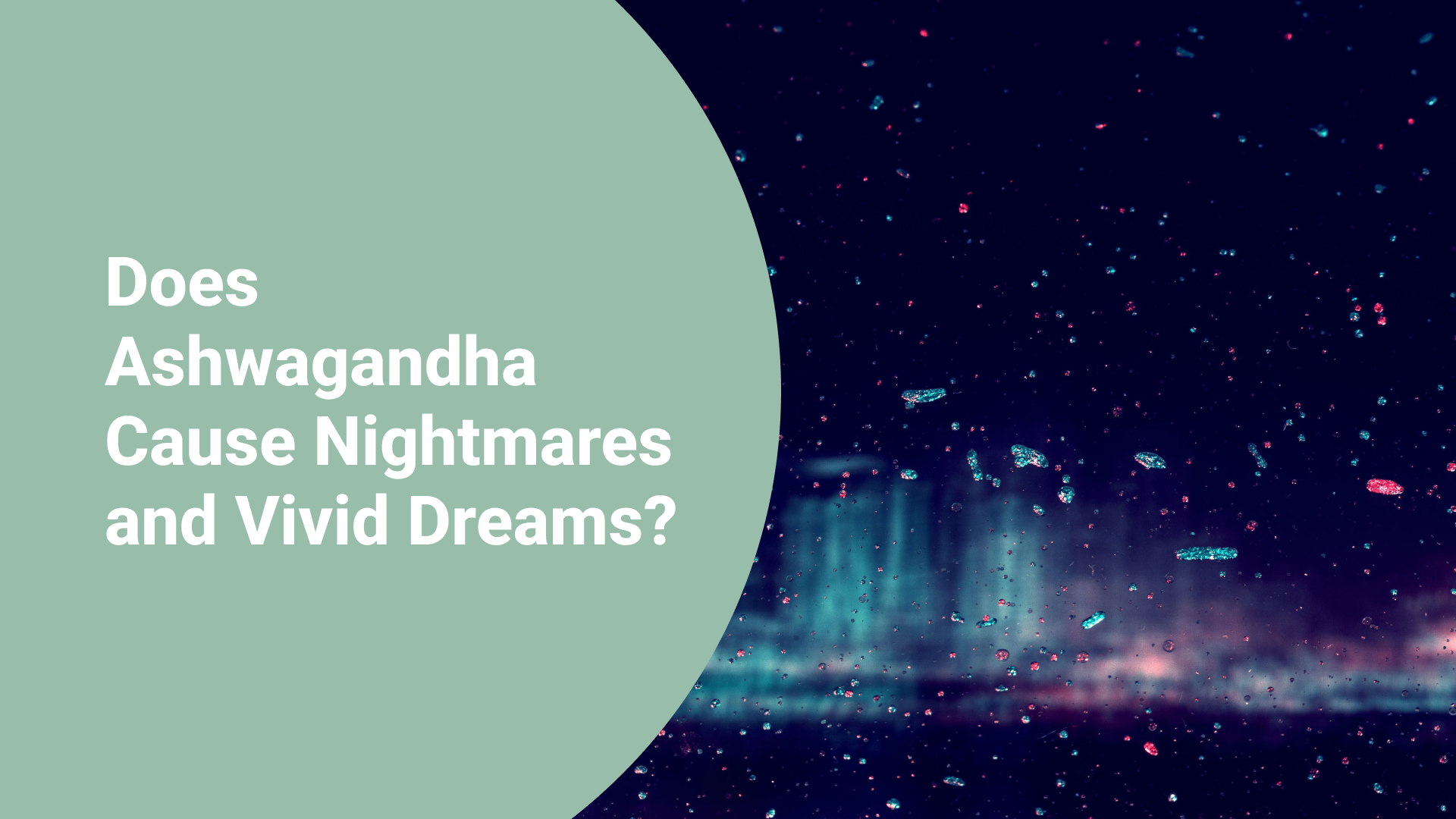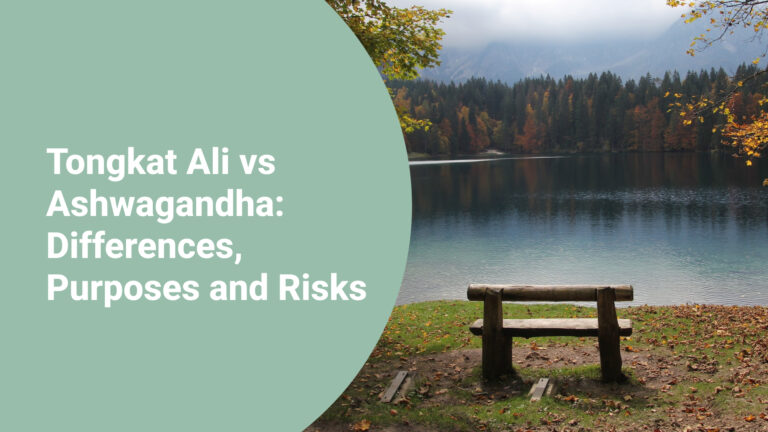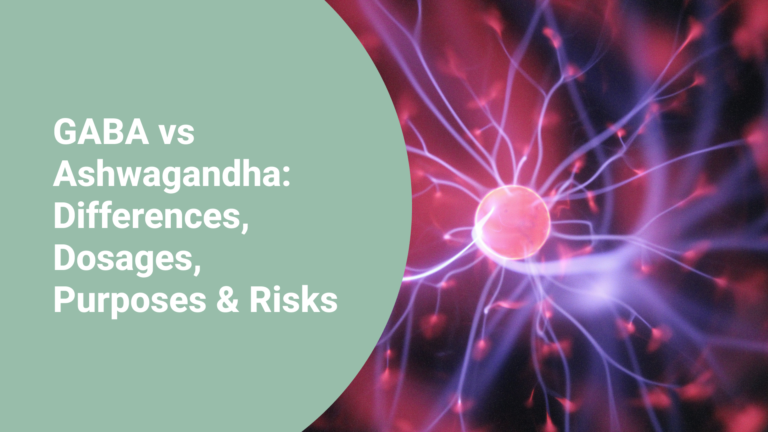Does Ashwagandha Cause Nightmares and Vivid Dreams?

Ashwagandha Expert is a project that offers the most accurate information in an accessible, understandable and applicable way so that readers can make the best...Read more
✅ Evidence-Based
⚙️ Methodology
From the author:
For a good night’s sleep, it’s crucial to have a productive day and hit the hay early. However, sleep issues can sometimes sneak up on us.
Our busy lives take a toll on our bodies, and high expectations can keep us tossing and turning at night. Daily stress can turn chronic, leading to elevated cortisol levels, increased tension, inflammation, and a disrupted sleep routine.
Ashwagandha — a natural herb with a long history in traditional Indian medicine (Ayurveda). This adaptogenic plant helps ward off stress and anxiety, cleansing the body of inflammation through its anti-inflammatory properties. An added bonus? It triggers vivid dreams.
Indeed, the buzz about Ashwagandha on TikTok, YouTube, Twitter, and across the web holds some truth. This potent herb acts as a strong sedative, promoting better sleep patterns for those struggling with restless nights.
What does science say?
Listen to the science when it comes to conventional medicine and supplements. Not all supplements work the same way for everyone, and using them without awareness can have negative effects.
The scientific literature reveals Ashwagandha’s positive impact on sleep. In one study, 29 insomniacs saw better sleep and increased time in bed after taking 300 mg of Ashwagandha twice daily, outperforming a placebo group of 19 individuals.
For 50 older adults aged 65 to 80, taking 600 mg of ashwagandha root daily for 12 weeks significantly enhanced sleep quality and mental alertness upon waking, surpassing a placebo treatment.
A 2021 study with 80 participants, spanning 8 weeks, explored ashwagandha root extract’s impact on sleep in individuals with and without insomnia. Results showed significant sleep improvements, especially for those with insomnia.
In a 2019 Indian hospital study, 60 participants took ashwagandha capsules or a placebo for 10 weeks. Using sleep actigraphy and other assessments, the study concluded that ashwagandha notably reduced the time it took to fall asleep and improved sleep efficiency and quality.
A 2020 study examined the effects of a standardized ashwagandha extract on sleep in 150 healthy individuals with poor sleep quality. After 6 weeks, the extract group reported a 72% improvement in sleep quality, compared to 29% in the placebo group.
All studies have shown that Ashwagandha improves sleep quality and restores a healthy sleep routine.
Learn other benefits of Ashwagandha.
What is my experience with Ashwagandha?
I take Ashwagandha and magnesium for better sleep.
Previously, I rarely dreamt, despite getting 8-9 hours of sleep. My sleep schedule was inconsistent, with late nights being the norm.
Now, with Ashwagandha, my bedtime gradually shifted earlier. By midnight, I start feeling sleepy. Adding magnesium to the mix enhanced this effect.
While these supplements aren’t like sleeping pills, they do help reset your body clock. Within 2-3 days of combining Ashwagandha and magnesium, I found myself getting drowsy in the evening and falling asleep shortly after bedtime.
Dreams became more frequent after using Ashwagandha. I used to dream a few times a month, but now it’s almost every night. Strangely, about 80% of these dreams are nightmares. The reason remains unclear, possibly something in my subconscious.
In conclusion, Ashwagandha noticeably influenced my sleep and dream patterns, making a visible impact in just a few days.
My Pick

Double Wood Supplements Ashwagandha 500mg
I picked Double Woods Supplements for my Ashwagandha, and it turned out good. The product doesn’t have a bad smell. It worked well for me. If you’re new to Ashwagandha, go for the 500 mg one from Double Products Supplements. It’s a good choice.
Small note: If you purchase the product through the button below, I may earn a small commission and continue this project.
How to use Ashwagandha for sleep
Consider Ashwagandha for better sleep by choosing the form that suits you—powder, tea, pill, tincture, or gummies. You can also try pairing Ashwagandha with Magnesium.
Start with a minimal dose (250-300mg) for better sleep. If you feel nausea, vomiting, headaches, insomnia, or anxiety, reduce the dose gradually as it might be too much for your body.
Keep in mind, Ashwagandha isn’t a sleeping pill; it eases stress and anxiety, enhancing sleep by calming the central nervous system. Avoid prolonged use beyond two months.
Not everyone should use Ashwagandha, such as those who are pregnant, breastfeeding, have thyroid issues, or take antidepressants or sedatives. Always consult with your doctor.
Since the FDA doesn’t closely monitor supplements, ensure you’re buying reputable products by taking extra precautions.
Side effects of Ashwagandha
Ashwagandha, when taken for up to three months, is likely safe, but its long-term safety remains unclear. Common side effects are generally mild and may include:
- Diarrhea
- Nausea
- Upset stomach
- Vomiting
Less common symptoms may include:
- Dry mouth
- Drowsiness
- Vertigo
- Hallucinations
- Cough and congestion
- Blurred vision
- Rash
- Weight gain
Use of Ashwagandha supplements for more than two months may pose a risk of liver damage.
Ashwagandha Expert is a project that offers the most accurate information in an accessible, understandable and applicable way so that readers can make the best possible decisions about the Ashwagandha plant and its use.
More Posts





